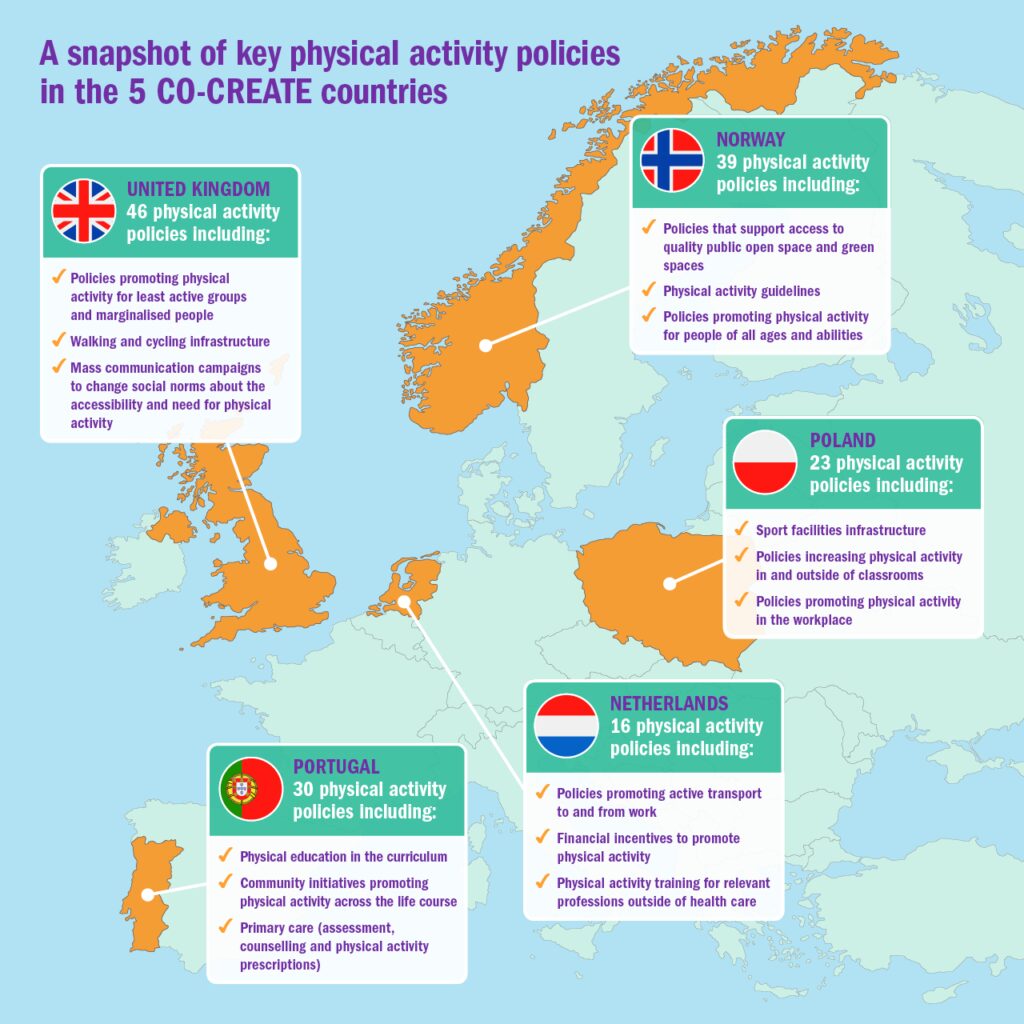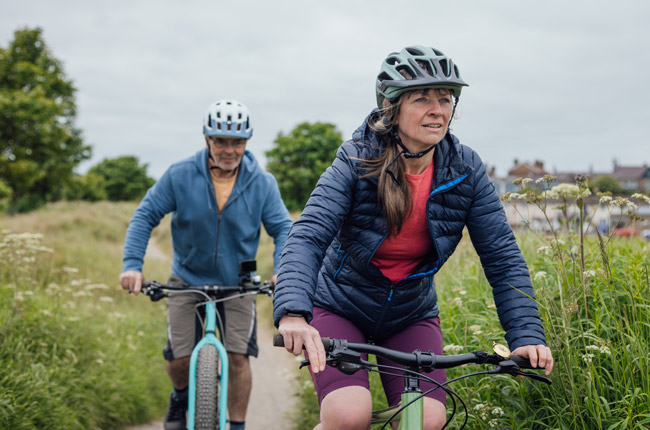World Cancer Research Fund (WCRF) International’s MOVING database is turning one this June and – as part of its first birthday celebration – we’ve taken the opportunity to reflect on what we’ve found, how we overcame some bumps in the road, and what we can look forward to as the database grows older!
The MOVING database was developed and launched as part of the EU-funded CO-CREATE project and is structured around the MOVING physical activity policy framework.
To support the Europe-wide scope of the project, we’ve been conducting a systematic scan of 27 European countries to populate the database. We’ll then expand to global surveillance to add policies from around the world.
All policies identified through our search protocol, which are national in scope and must be in effect, are verified by an in-country government expert for quality assurance purposes.
Over the last year we’ve found…
- A large number of policies in the 16 countries we scanned so far – 283, with the most common type of policy being sport and recreation. Norway had the most and Latvia had the least. The average number per country is 5. We will check whether this number changes when we scan the remaining countries.
- Policies through partnership. Through CO-CREATE, we collaborated with the University of Cape Town who scanned policies from South Africa. We have 4 so far on the database and will add more soon.
- The vast majority of the countries we scanned (14 out of 16) have published physical activity recommendations. WHO has recently updated their physical activity guidelines to also include recommendations on sedentary behaviour which now target also people living with chronic diseases (including NCDs). It will be interesting to see if the countries will update their guidelines as well.
- That the policies we’ve found cover a large range of areas, including:
– Policies that encourage children and teenagers to get active, like the Program Szkolny Klub Sportowy in Poland, a school sports programme for primary and secondary school students which creates a space for additional physical activity in the form of sports and recreational activities. It focuses particularly on children and adolescents with lower physical fitness who are less frequently engaged in physical activity.
– Policies that promote physical activity training for professionals (within and outside healthcare such as teachers, architects etc) like the Actívate, aconseja salud (Take action, advise health), an online course for health professionals developed by the Spanish Ministry of Health to promote physical activity.
– Policies that promote active travel through walking and cycling infrastructure like the O Ciclismo Vai à Escola (Cycling Goes to School Project) in Portugal which aims to promote the use of bicycles in school and the Cycle to Work scheme in the UK, which allows employers to loan cycles and cyclists’ safety equipment to employees as a tax-free benefit, access to open and green spaces; education for everyone about the benefits of living an active life and physical activity counselling and assessment. - A large number of local policies which we’ve also stumbled across in our systematic search. Whilst not eligible for the database due to its focus on national only policies, its highlighted to us that national policies often drive and support local policy development and implementation.
- Physical activity policy is often delivered by many different government departments – for Norway over 25 institutions were searched!

A snapshot of key physical activity policies in the 5 CO-CREATE countries
We’ve learnt that…
- Developing and launching a database from our kitchens, bedrooms and living rooms during the COVID-19 pandemic was hard and required project management skills on steroids. However we adapted and pivoted an in-person launch event to a webinar which actually had much greater reach and attendance than we envisaged!
- In-country government experts – usually policy officials – are very busy people, especially during a global pandemic! We’re very grateful for their time, patience and collaboration in verifying policies for the databases. And we are grateful for the support of WHO EURO in connecting us to the right experts and contacts.
- We’ve got quicker and quicker at searching for policies and have rapidly increased the speed by which we can find policies through using specific search engines and government websites.
- Translating individual policies into English is still very time consuming – but it’s a vital part of our work.
Next, we’re going to…
- Keep searching for policies and adding them to the database. We will complete scans for Bulgaria, Finland, Slovenia, Hungary, Sweden, Czech Republic, Croatia, Estonia, Romania, Slovakia, Lithuania and Greece next, as part of our in-depth European scan and then we will monitor policy developments around the world.
- Then we will add policies from around the rest of the world through ongoing surveillance activities – let us know if there are any we should add!
- Keep updating the database when policies change or expire, as well as add policy evaluations.
- Promote the databases as a resource for all to use to find out what’s going on in their country and track progress.
- Develop policy indexes of all the policies we’ve found in the databases. They will be categorised and benchmarked in the same structure as the MOVING framework. It will be a while until its finished, but we can’t wait to share our next phase of work with you all.
Let us know what you think about the MOVING database
> Take our short survey to help us better understand our audience and what people use the databases for.




